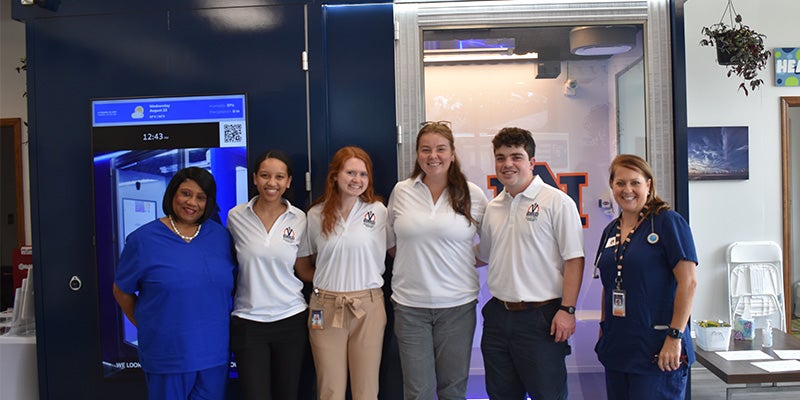Health and wellness center hosts stroke education
Published 12:30 pm Thursday, August 24, 2023
|
Getting your Trinity Audio player ready...
|
Students from the Edward Via College of Osteopathic Medicine (VCOM) spent Wednesday providing stroke education for community members at the Chambers County Community Health and Wellness Center.
The program, titled “Why Do Strokes Happen?,” is a partnership between Auburn University, VCOM and the health and wellness center. During the morning, students spoke to 14 older adults from a local senior center about the prevention and detection of strokes.
The health and wellness center hosts a variety of educational events and health screenings in partnership with Auburn University Outreach, Chambers County Extension office and Chambers County Commission.
“I’m hoping it’s going to have a great impact and that our community, whether it’s senior citizens or, you know, young adults or whatever, will have a place here that they can come and get the information they need,” said Leah Sledge, administrative assistant at the Chambers County Community Health and Wellness Center.
Dr. Linda Gibson-Young, an Auburn nursing professor, has coordinated students from Auburn University and VCOM to volunteer at the center since it opened in March.
“I think she’s been incredibly helpful,” said VCOM student Lindsey Franklin.
The students are also working with Administrative Assistant Debra Ward, who is leading community efforts in Chambers County. Young commended her for work with the community.
Franklin, Kaitlyn Flugga, Alizah Garvin and Reece George are all in their second year at VCOM. They, along with six other students, have spent the past year doing research on the causes and prevention of stroke and other cardiovascular conditions.
“When we looked at the research and looked at metrics, Chambers County was high comparatively to the United States and Alabama in diabetes, stroke and other cardiovascular incidents,” Flugga said.
The goal of the partnership is to provide additional educational resources to rural areas where there is a healthcare access disparity. By partnering with the center, the students said they have gained experience communicating with and educating community members.
“I think it was a good learning opportunity for VCOM students who may not be familiar with rural health care and the struggles that we do have in this community,” Sledge said.
The students educated the community on lifestyle choices that can help prevent the risk of stroke and cardiovascular incidents. Flugga said research has shown the county also has lower rates of physical activity and access to healthy meal choices.
“I think strokes are very, very preventable in most cases. So being able to educate yourself — whether it’s coming here and talking with the facilities or checking with your doctor or just doing a quick little search — it’s a very important thing, and it saves lives,” Flugga said.
Garvin said one of the challenges they faced has been finding partners within the community. When the group partnered with Young, she said they found a useful resource.
“I think she is passionate about it, and so she has like made it very accessible for us to be here,” Franklin said.
Franklin said she hopes to see community members applying the knowledge that they’ve learned and sharing it with their friends and family.
“A good measure of how effective education is is their willingness to share it with someone else,” Franklin said.
“Be proactive,” George said.



